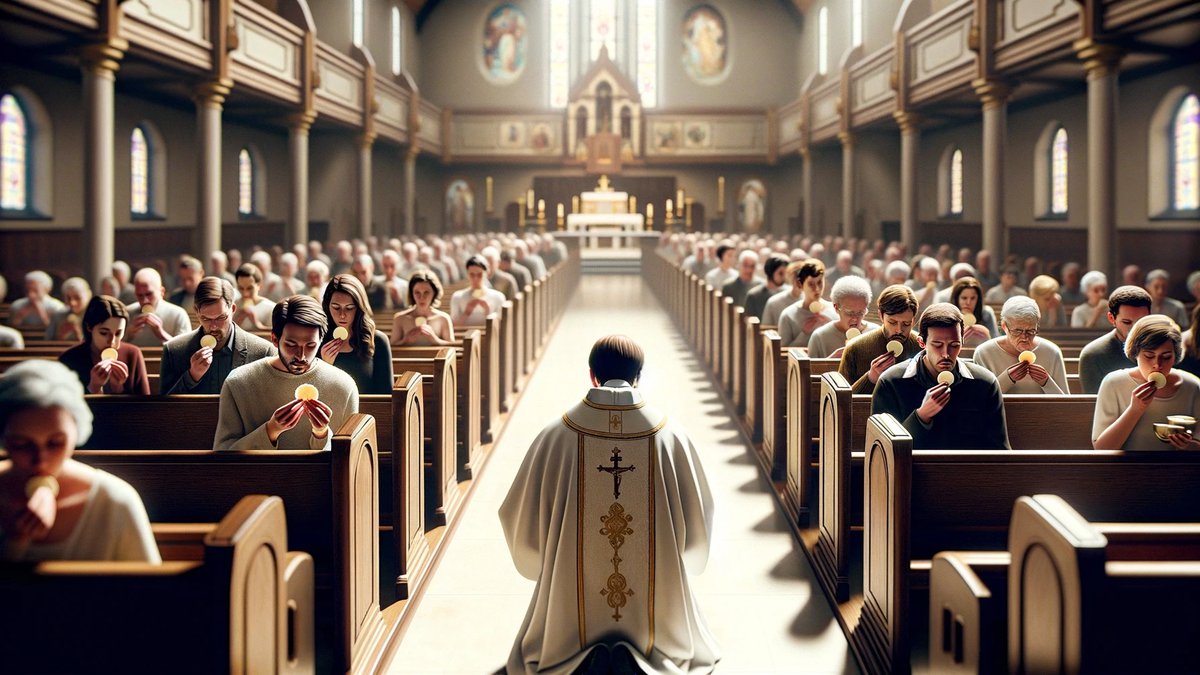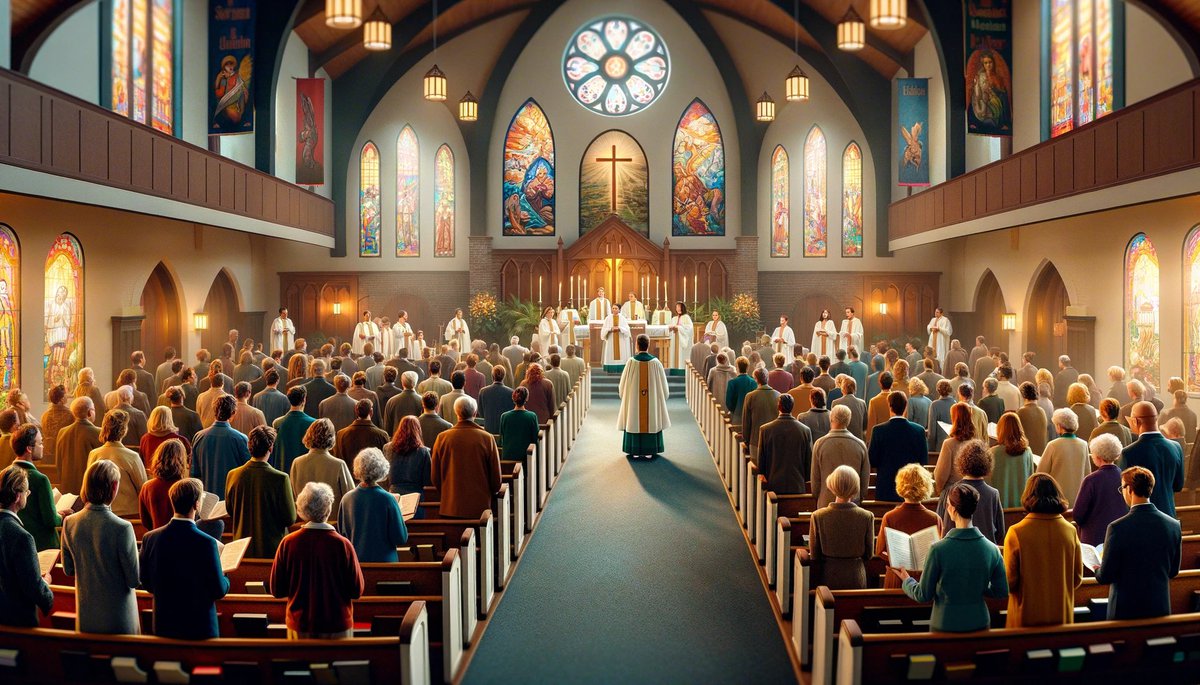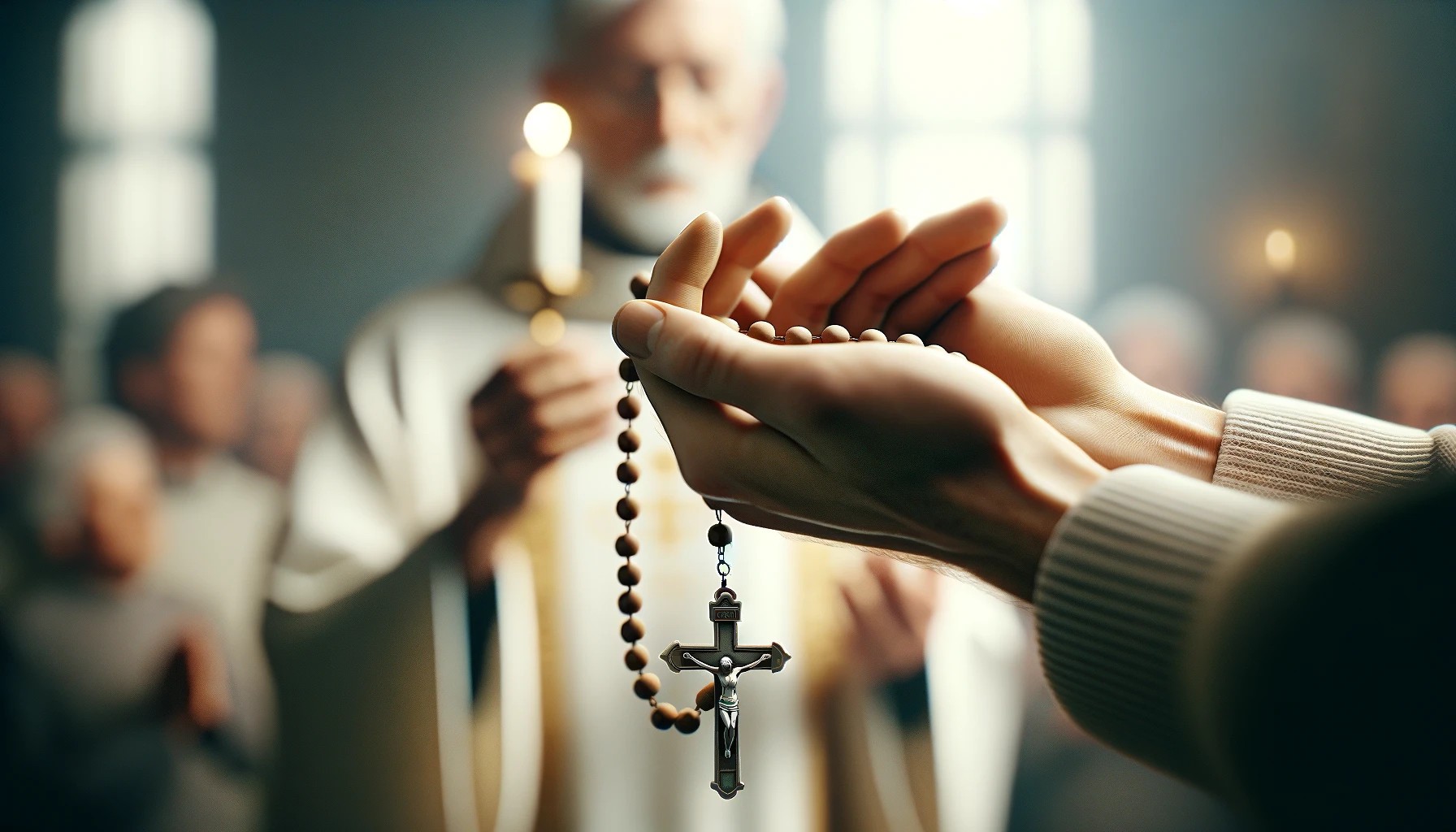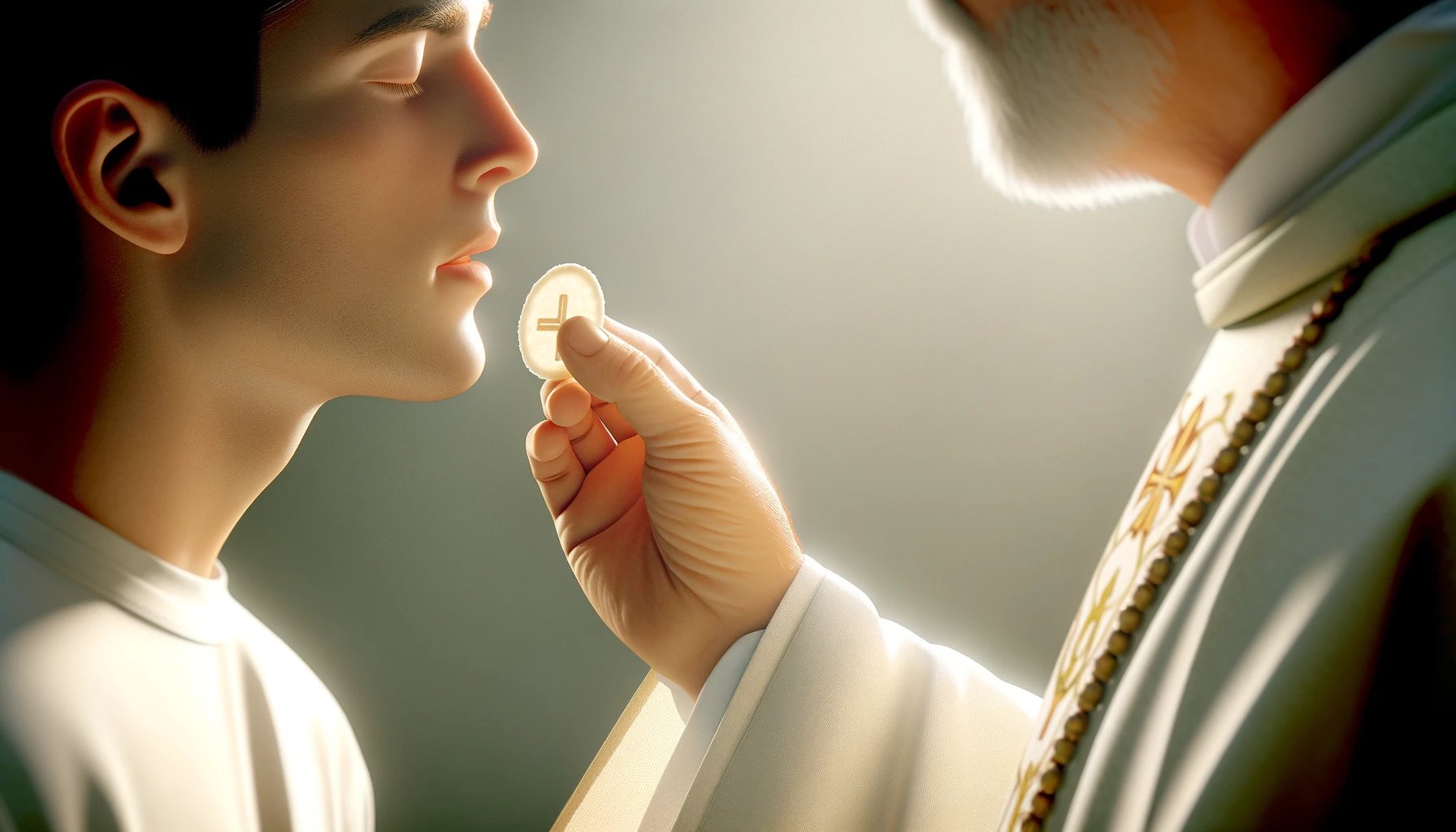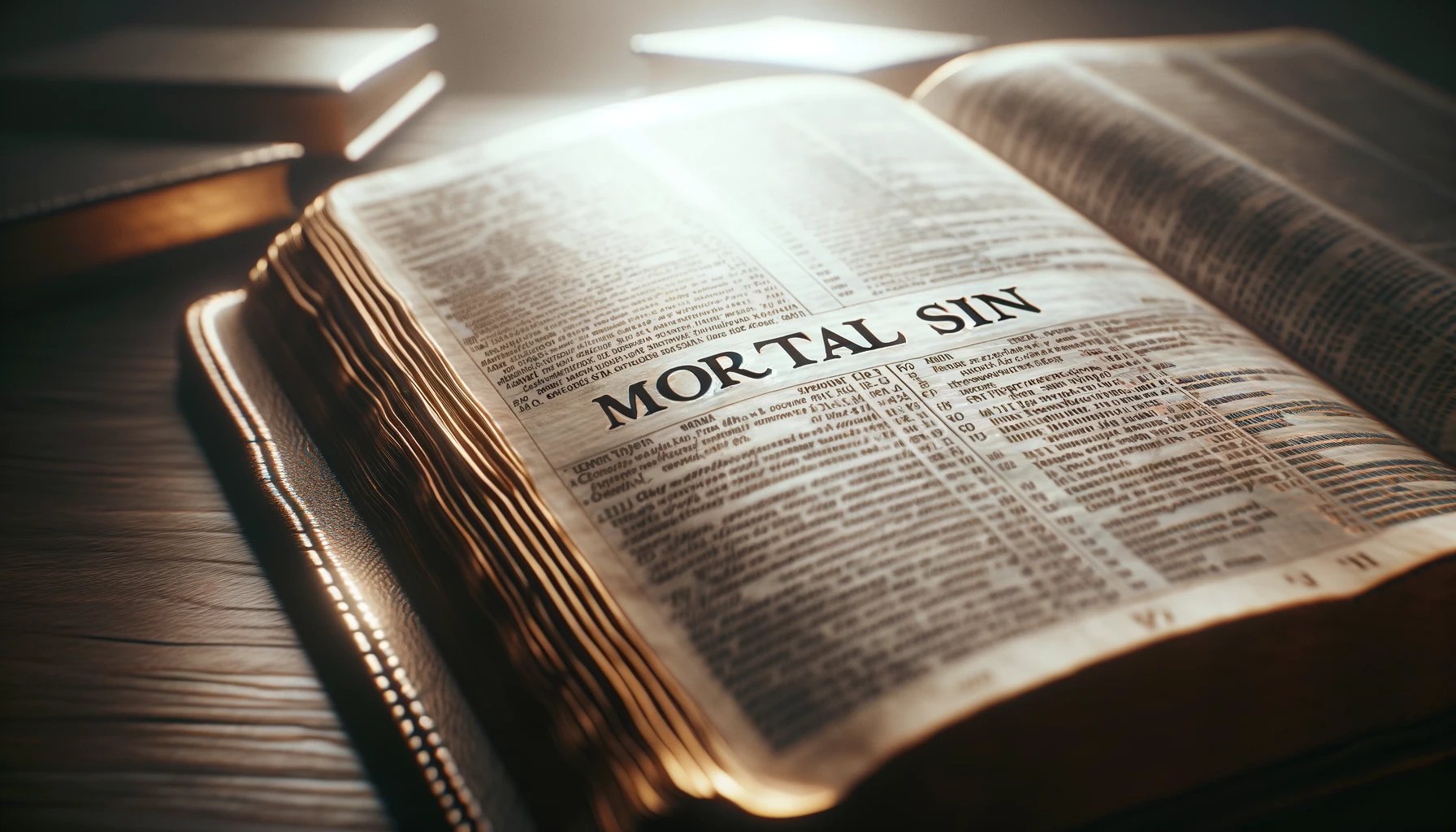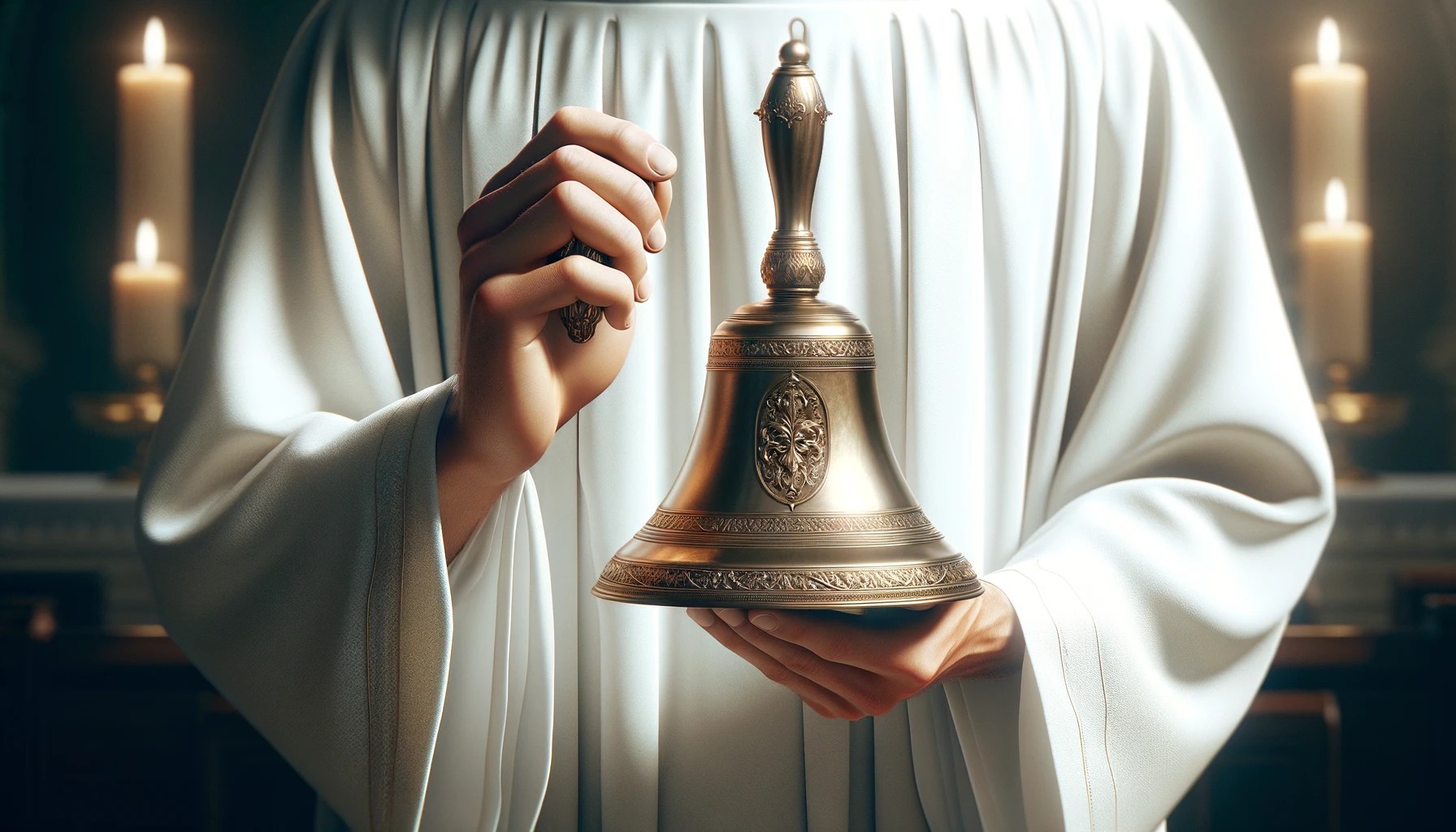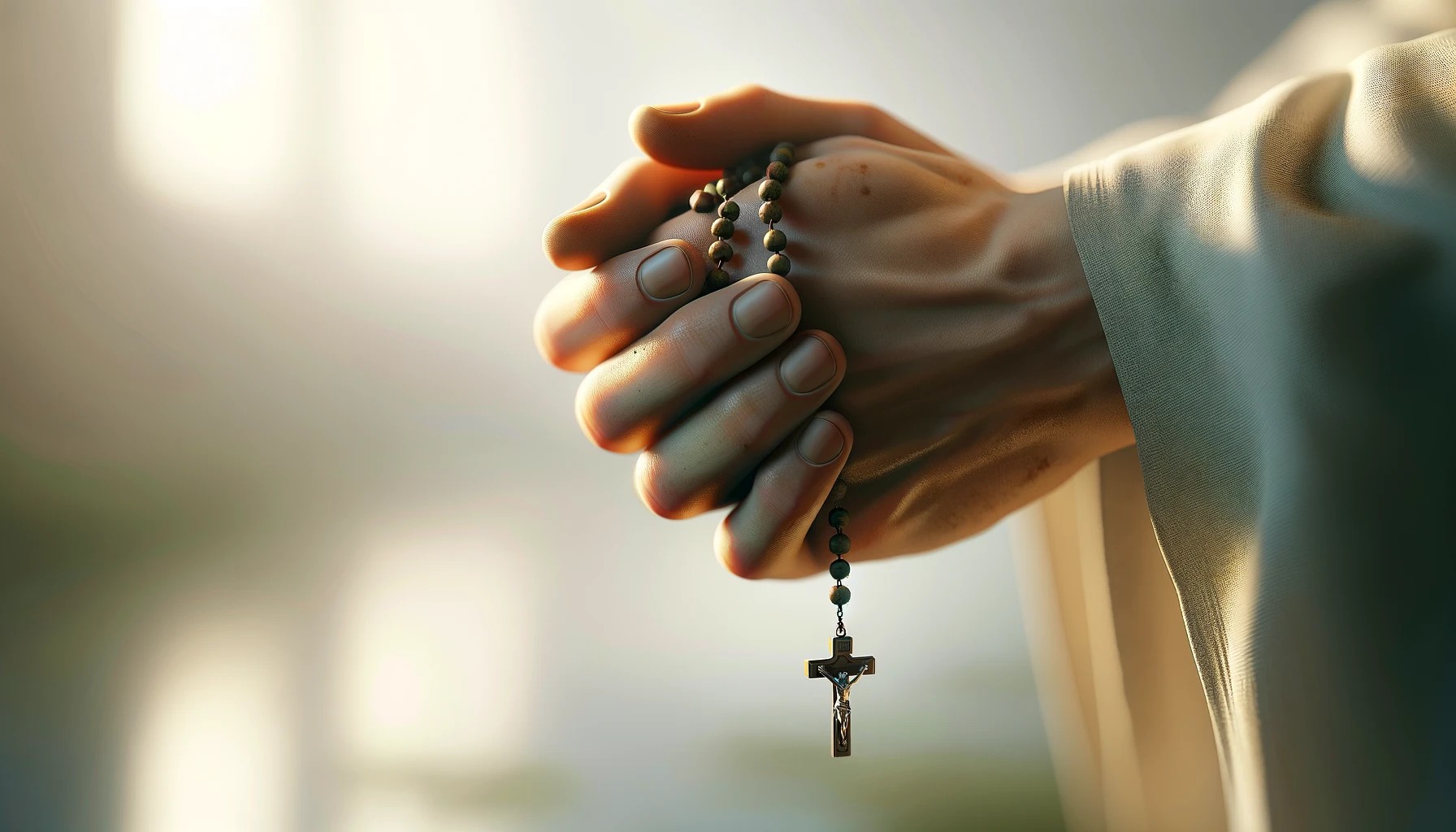Home>Theology and Spirituality>Why Can’t Non-Catholics Receive Communion


Theology and Spirituality
Why Can’t Non-Catholics Receive Communion
Published: February 24, 2024
Jason DeRose, Managing Editor at Christian.net, uses his expertise in religion and journalism to deepen understanding of faith's societal impacts. His editorial leadership, coupled with a strong academic background, enriches the platform’s diverse content, earning him recognition in both journalism and religious circles.
Discover the reasons why non-Catholics are unable to partake in Communion. Explore the theological and spiritual implications of this practice. Gain insight into the Catholic perspective on Communion for non-Catholics.
(Many of the links in this article redirect to a specific reviewed product. Your purchase of these products through affiliate links helps to generate commission for Christian.net, at no extra cost. Learn more)
Table of Contents
Introduction
Communion, also known as the Eucharist, holds profound significance within the Catholic Church. It is a sacred sacrament that symbolizes the unity of believers with Christ and with one another. The act of receiving communion is a central aspect of Catholic worship, representing the spiritual nourishment derived from partaking in the body and blood of Christ.
The Catholic Church's stance on communion is rooted in centuries of theological tradition and is considered a sacred rite that embodies the core tenets of the faith. However, the question of whether non-Catholics can receive communion has been a topic of considerable debate and divergence among different Christian denominations.
In exploring this complex and sensitive issue, it is essential to delve into the theological underpinnings of communion within the Catholic context, as well as the doctrinal disparities that exist between the Catholic Church and other Christian traditions. Additionally, understanding the pastoral considerations and implications of non-Catholic participation in communion is crucial for fostering respect and dialogue among diverse religious communities.
As we embark on this exploration, it is important to approach the topic with reverence and an open mind, recognizing the deep spiritual significance that communion holds for Catholics and the complexities surrounding its practice in an interfaith context. Through thoughtful reflection and examination, we can gain a deeper understanding of the multifaceted dimensions of communion within the Catholic Church and its implications for non-Catholic individuals seeking to partake in this sacred sacrament.
The Importance of Communion in the Catholic Church
Communion, also known as the Eucharist, occupies a central and revered position within the Catholic Church. It is considered one of the seven sacraments, representing a profound spiritual union with Christ and the community of believers. The significance of communion is deeply rooted in the teachings and traditions of the Catholic faith, embodying the core principles of redemption, unity, and divine grace.
At the heart of Catholic belief is the understanding that during the celebration of the Eucharist, the bread and wine become the body and blood of Christ through the process of transubstantiation. This transformation is not merely symbolic but is believed to be a mystical and sacred reality, wherein Christ becomes truly present in the elements of bread and wine. As such, communion is not merely a symbolic ritual but a profound encounter with the living Christ, fostering a deep spiritual connection with the divine.
The act of receiving communion is a deeply personal and communal experience for Catholics. It is a moment of intimate encounter with Christ, wherein believers partake in the spiritual nourishment that sustains their faith journey. Through communion, Catholics express their unity with Christ and with one another, reinforcing the communal bond that defines the body of Christ, the Church.
Furthermore, communion is intricately linked to the concept of salvation and redemption within Catholic theology. By partaking in the body and blood of Christ, believers are reminded of the sacrificial love of Jesus and the redemptive power of his crucifixion and resurrection. This sacred meal serves as a tangible expression of God's unending love and mercy, inviting believers to partake in the divine life and grace offered through Christ.
In essence, communion is not merely a ritualistic practice within the Catholic Church; it is a profound expression of faith, unity, and divine grace. Its importance extends beyond the confines of religious observance, permeating the spiritual lives of Catholics and shaping their understanding of the sacred mysteries of the faith. As such, the significance of communion in the Catholic Church is deeply intertwined with the core beliefs and practices that define the rich tapestry of Catholic spirituality and theology.
The Theological Basis for Communion in the Catholic Church
The theological foundation of communion in the Catholic Church is rooted in the profound understanding of the Eucharist as a sacrament of unity, nourishment, and divine presence. At the core of Catholic theology lies the belief in the real presence of Christ in the consecrated elements of bread and wine. This belief, known as transubstantiation, asserts that during the celebration of the Eucharist, the substance of the bread and wine is transformed into the body and blood of Christ while retaining their outward appearance.
This theological concept is derived from the teachings of Jesus Christ himself, particularly from the accounts of the Last Supper as recorded in the Gospels. When Jesus took bread, blessed it, and said, "This is my body," and likewise with the cup of wine, stating, "This is my blood," he established the foundation for the sacrament of communion. The Catholic Church interprets these words as a literal and profound revelation of Christ's presence in the Eucharistic elements, thereby shaping the theological understanding of communion as a sacred encounter with the living Christ.
Furthermore, the theological basis for communion in the Catholic Church is intricately linked to the concept of sacrifice and redemption. The Eucharist is seen as a re-presentation of Christ's sacrificial offering on the cross, wherein believers are invited to partake in the saving grace and redemptive power of Christ's sacrifice. This theological perspective underscores the transformative nature of communion, wherein believers are spiritually nourished and united with Christ through the reception of his body and blood.
Moreover, the Catholic Church's theology of communion emphasizes the communal dimension of the Eucharist. It is not merely an individual act of devotion but a communal celebration that unites the faithful as the body of Christ. The shared participation in the Eucharist underscores the ecclesial nature of communion, emphasizing the unity and interconnectedness of believers within the mystical body of Christ, the Church.
In summary, the theological basis for communion in the Catholic Church is grounded in the profound understanding of the Eucharist as a sacrament of real presence, sacrificial love, and communal unity. This theological framework shapes the Catholic understanding of communion as a sacred and transformative encounter with the living Christ, embodying the core tenets of Catholic faith and spirituality.
Differences in Beliefs and Practices
The question of whether non-Catholics can receive communion is deeply intertwined with the differences in beliefs and practices between the Catholic Church and other Christian denominations. These disparities stem from divergent theological interpretations, historical developments, and ecclesiastical traditions that have shaped the distinct approaches to the Eucharist across various Christian communities.
One of the primary points of contention revolves around the understanding of the real presence of Christ in the Eucharist. While the Catholic Church upholds the doctrine of transubstantiation, affirming that the bread and wine become the actual body and blood of Christ, many Protestant traditions hold differing views on the nature of Christ's presence in the Eucharistic elements. For instance, some Protestant denominations interpret the Eucharist as a symbolic memorial of Christ's sacrifice, emphasizing the spiritual significance of the ritual without ascribing to the concept of transubstantiation.
Additionally, differences in beliefs regarding the priesthood and ecclesial authority contribute to varying practices related to communion. Within the Catholic tradition, the ordained priesthood plays a central role in consecrating the Eucharistic elements, thereby imparting a distinct sacramental character to the act of communion. In contrast, certain Protestant traditions emphasize the priesthood of all believers and adopt a more symbolic or memorialist approach to the Eucharist, reflecting their theological perspectives on the priesthood and the nature of church authority.
Moreover, the historical and doctrinal divisions that have arisen within Christianity have influenced the divergent practices surrounding communion. The Reformation era witnessed the emergence of theological disagreements and ecclesiastical schisms, leading to the formation of distinct Protestant traditions with their own theological emphases and liturgical practices. These historical developments have contributed to the varied approaches to communion, with some traditions embracing open communion, wherein non-members are welcome to partake, while others maintain closed communion, reserving the sacrament for baptized members of their own faith community.
In essence, the differences in beliefs and practices surrounding communion reflect the diverse theological perspectives, historical trajectories, and ecclesiastical frameworks that characterize the rich tapestry of Christian traditions. These variations underscore the complexities inherent in addressing the question of non-Catholic participation in communion and highlight the need for respectful dialogue and understanding across denominational boundaries.
The Role of Communion in Catholic Identity
Communion holds a profound and multifaceted role in shaping the identity of Catholics, encompassing spiritual, communal, and doctrinal dimensions that are integral to the lived experience of the faith. At its core, communion serves as a defining expression of Catholic identity, encapsulating the beliefs, practices, and communal bonds that unite Catholics across diverse cultural and geographical contexts.
Spiritually, communion is a sacred encounter with the real presence of Christ, wherein Catholics partake in the body and blood of Christ, receiving spiritual nourishment and grace that sustains their faith journey. This intimate communion with Christ fosters a deep sense of spiritual connectedness and personal devotion, anchoring Catholics in their relationship with the divine and reinforcing their identity as followers of Christ.
Furthermore, communion plays a pivotal role in fostering communal unity and solidarity within the Catholic Church. As believers gather to partake in the Eucharist, they affirm their shared identity as members of the mystical body of Christ, the Church. The act of communion underscores the interconnectedness of believers, transcending individual experiences to form a cohesive and vibrant faith community. This communal dimension of communion reinforces the collective identity of Catholics, emphasizing their participation in the larger ecclesial body and their commitment to communal worship and fellowship.
Moreover, the doctrinal significance of communion shapes the theological identity of Catholics, grounding their faith in the rich sacramental tradition of the Church. The belief in the real presence of Christ in the Eucharist, coupled with the sacramental theology that underpins communion, forms a cornerstone of Catholic identity, distinguishing it from other Christian traditions. The Eucharist is not merely a symbolic ritual but a profound sacrament that embodies the core tenets of Catholic faith, thereby shaping the theological contours of Catholic identity.
In essence, communion serves as a linchpin of Catholic identity, weaving together spiritual, communal, and doctrinal threads that define the lived experience of the faith. Its role in shaping the identity of Catholics extends beyond the confines of religious practice, permeating the spiritual, communal, and theological dimensions of their faith journey. As such, communion stands as a sacred and unifying force that binds Catholics together in their shared identity as members of the universal Church, embodying the richness and depth of Catholic spirituality and theology.
Read more: Why Do We Receive The Holy Communion
Pastoral Considerations for Non-Catholic Participation in Communion
The question of non-Catholic participation in communion raises complex pastoral considerations that necessitate thoughtful reflection and discernment within the Catholic Church. It is a topic that intersects with theological, ecumenical, and pastoral dimensions, prompting careful discernment and sensitivity to the diverse spiritual needs and beliefs of individuals from different Christian traditions.
One of the primary pastoral considerations revolves around fostering respectful dialogue and understanding across denominational boundaries. The Catholic Church recognizes the diverse theological perspectives and practices regarding communion that exist within the broader Christian community. As such, it is essential to engage in open and empathetic conversations with non-Catholic individuals, acknowledging the deeply held beliefs and traditions that shape their approach to the Eucharist. By cultivating an environment of mutual respect and dialogue, the Church can promote greater understanding and unity among diverse Christian communities, fostering a spirit of ecumenical collaboration and shared reverence for the sacred mysteries of the faith.
Additionally, pastoral discernment regarding non-Catholic participation in communion entails a careful balance between upholding the integrity of Catholic sacramental practice and extending pastoral care to individuals who may seek to partake in the Eucharist. The Catholic Church holds the Eucharist in the highest regard, recognizing it as a sacred sacrament that embodies the real presence of Christ and the communal unity of believers. In light of this reverence, pastoral guidance is essential in articulating the theological significance of communion within the Catholic tradition while also acknowledging the spiritual yearnings and intentions of non-Catholic individuals who may approach the Eucharist with deep reverence and faith.
Furthermore, pastoral considerations encompass the importance of providing clear and compassionate guidance to non-Catholic individuals regarding the Church's discipline on communion. This entails communicating the theological and canonical principles that underpin the Catholic Church's practice of reserving the Eucharist for baptized members of the faith community. By offering pastoral guidance rooted in understanding and charity, the Church can uphold the integrity of its sacramental practice while also demonstrating pastoral sensitivity and accompaniment to individuals who may approach communion from different theological perspectives.
In essence, pastoral considerations for non-Catholic participation in communion call for a nuanced and empathetic approach that embraces respectful dialogue, theological clarity, and pastoral sensitivity. By navigating these considerations with discernment and compassion, the Catholic Church can foster an environment of understanding, unity, and pastoral care, reflecting the inclusive and merciful love of Christ for all who seek spiritual nourishment and communion with the divine.
Conclusion
In conclusion, the question of non-Catholic participation in communion is a multifaceted and nuanced issue that encompasses theological, pastoral, and ecumenical dimensions. The significance of communion within the Catholic Church is deeply rooted in the theological understanding of the Eucharist as a sacrament of real presence, sacrificial love, and communal unity. It holds profound importance in shaping the spiritual, communal, and doctrinal identity of Catholics, serving as a sacred expression of their faith and unity with Christ and the Church.
The differences in beliefs and practices surrounding communion across various Christian traditions underscore the complexities inherent in addressing the question of non-Catholic participation in the Eucharist. These disparities reflect the diverse theological perspectives, historical developments, and ecclesiastical frameworks that characterize the rich tapestry of Christian traditions. It is essential to approach these differences with respect and understanding, fostering dialogue and collaboration in the spirit of ecumenism and Christian unity.
From a pastoral perspective, navigating the question of non-Catholic participation in communion requires discernment, empathy, and pastoral sensitivity. The Catholic Church is called to engage in open and respectful dialogue with individuals from different Christian traditions, acknowledging their deeply held beliefs and spiritual yearnings while upholding the integrity of Catholic sacramental practice. By providing clear pastoral guidance and fostering an environment of understanding and compassion, the Church can navigate this complex issue with grace and charity.
Ultimately, the question of non-Catholic participation in communion invites the Catholic Church to embody the inclusive and merciful love of Christ, extending pastoral care and accompaniment to all who seek spiritual nourishment and communion with the divine. It is a call to embrace the richness of diverse Christian traditions while upholding the sacredness of the Eucharist within the Catholic faith, fostering unity, understanding, and reverence for the sacred mysteries that bind believers together in their shared journey of faith.

